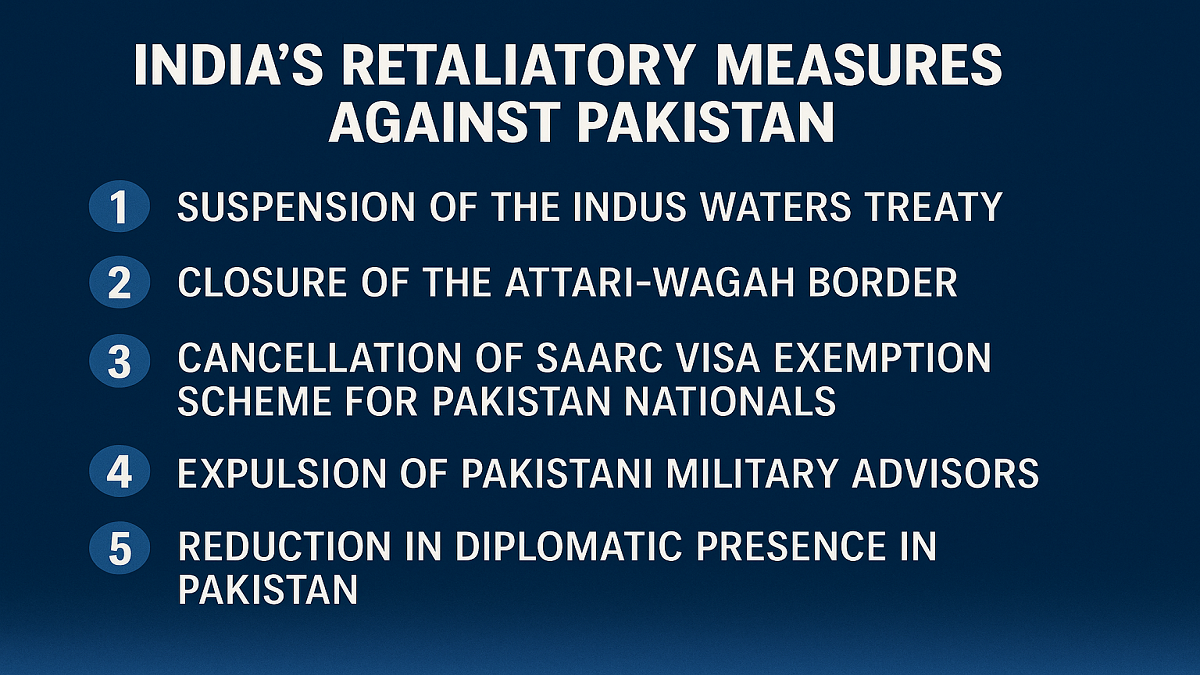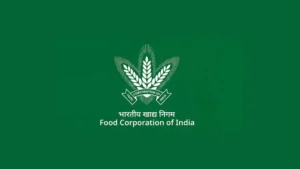Following the Pahalgam terror attack in Jammu and Kashmir, which claimed the lives of 26 people, including a foreign national, the Government of India has taken strong retaliatory steps against Pakistan, citing evidence of cross-border terrorist involvement.
The decisions were made during an emergency meeting of the Cabinet Committee on Security (CCS), India’s apex body for national security matters. The measures form part of a 5-point strategic action plan aimed at isolating Pakistan diplomatically and restricting its influence within India.
1. Suspension of the Indus Waters Treaty
A Strategic and Symbolic Move
India’s first and perhaps most significant action is the suspension of the Indus Waters Treaty (IWT) — a long-standing bilateral agreement signed in 1960 governing the sharing of six rivers in the Indus basin.
While the treaty does not have a unilateral exit clause, India has chosen to suspend all cooperative activities under the treaty, including water-sharing talks and oversight visits. This move serves both as a symbolic rebuke and a strategic pressure point, given Pakistan’s heavy reliance on the western rivers of the Indus system.
The suspension will remain in effect until Pakistan stops providing support to cross-border terrorism.
2. Closure of the Attari-Wagah Border
Shutting Down the Key Land Route
The Indian government has closed the Attari-Wagah border, the only road link for passenger and trade transit between India and Pakistan.
- This move halts all cross-border movement, including the flow of goods and civilian travel.
- Individuals who have already crossed into India with valid documents will be allowed to return by May 1, 2025.
The border closure is intended to cut off cross-border infiltration routes and limit any logistical assistance to terror networks operating from Pakistani soil.
3. Cancellation of SAARC Visa Exemption Scheme for Pakistan Nationals
A Major Blow to Regional Diplomacy
In another sweeping decision, India has suspended the SAARC Visa Exemption Scheme (SVES) for all Pakistani nationals. The scheme had earlier allowed select categories such as journalists, business leaders, and government officials to travel within SAARC countries without visas.
- All previously issued SVES visas to Pakistani citizens have been cancelled.
- Pakistani nationals currently in India under SVES have been given 48 hours to leave the country.
This action severely undermines people-to-people contact and reflects a broader breakdown in SAARC regional cooperation, already weakened in recent years.
4. Expulsion of Pakistani Military Advisors
Ending Military-to-Military Diplomatic Presence
India has declared all Pakistani military advisors (including Defence, Naval, and Air Attachés) posted in the Pakistani High Commission in New Delhi as persona non grata.
- They have been given one week to leave India.
- India will simultaneously withdraw its own military advisors stationed at the Indian High Commission in Islamabad.
This step signifies a complete suspension of defence-level diplomatic engagement, often seen as a last-resort measure in diplomatic disputes.
5. Reduction in Diplomatic Presence in Pakistan
Curtailing Formal Diplomatic Interaction
India has also announced a downsizing of its High Commission in Islamabad, reducing the total number of diplomatic staff from 55 to 30 by May 1, 2025.
This step further narrows the scope of diplomatic interactions and sends a clear message that routine bilateral dialogue is no longer viable under current circumstances.
Government Response and Investigation Status
Swift Action on the Ground
The CCS meeting was attended by key national leaders, including:
- Home Minister Amit Shah
- Defence Minister Rajnath Singh
- External Affairs Minister S. Jaishankar
- National Security Advisor Ajit Doval
Security forces have launched a massive manhunt for the perpetrators. Early intelligence reports suggest that the attack was executed by a group of seven heavily armed terrorists, some of whom are confirmed to be Pakistani nationals.
Amit Shah personally visited the attack site in Pahalgam, as well as the hospitals treating the injured, underscoring the government’s commitment to justice and victim support.



 FCI Signs Landmark MoU with WFP to Suppl...
FCI Signs Landmark MoU with WFP to Suppl...
 How Two Engineers Built Sarvam AI from a...
How Two Engineers Built Sarvam AI from a...
 Gender Budgeting In India Jumps 11.55%: ...
Gender Budgeting In India Jumps 11.55%: ...








